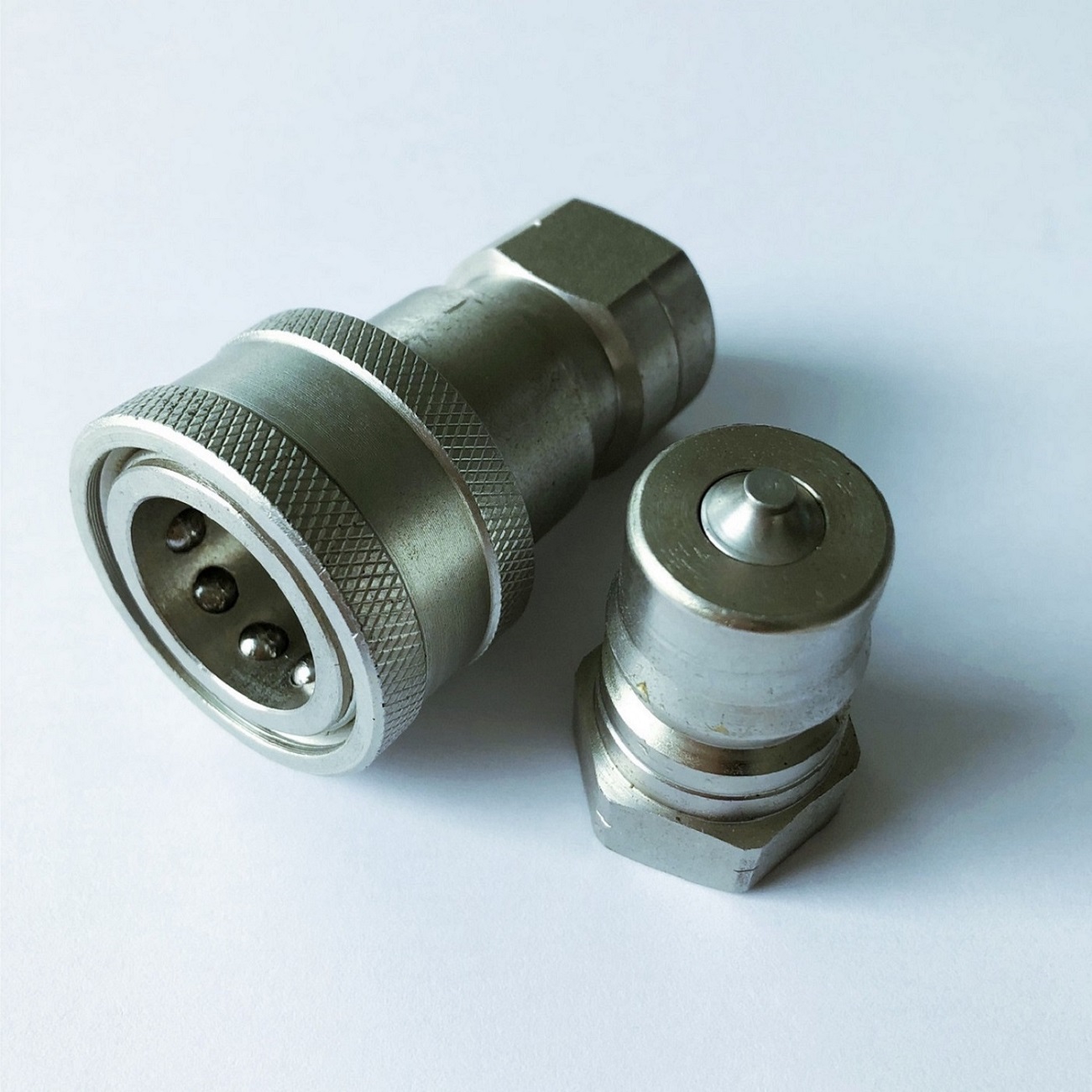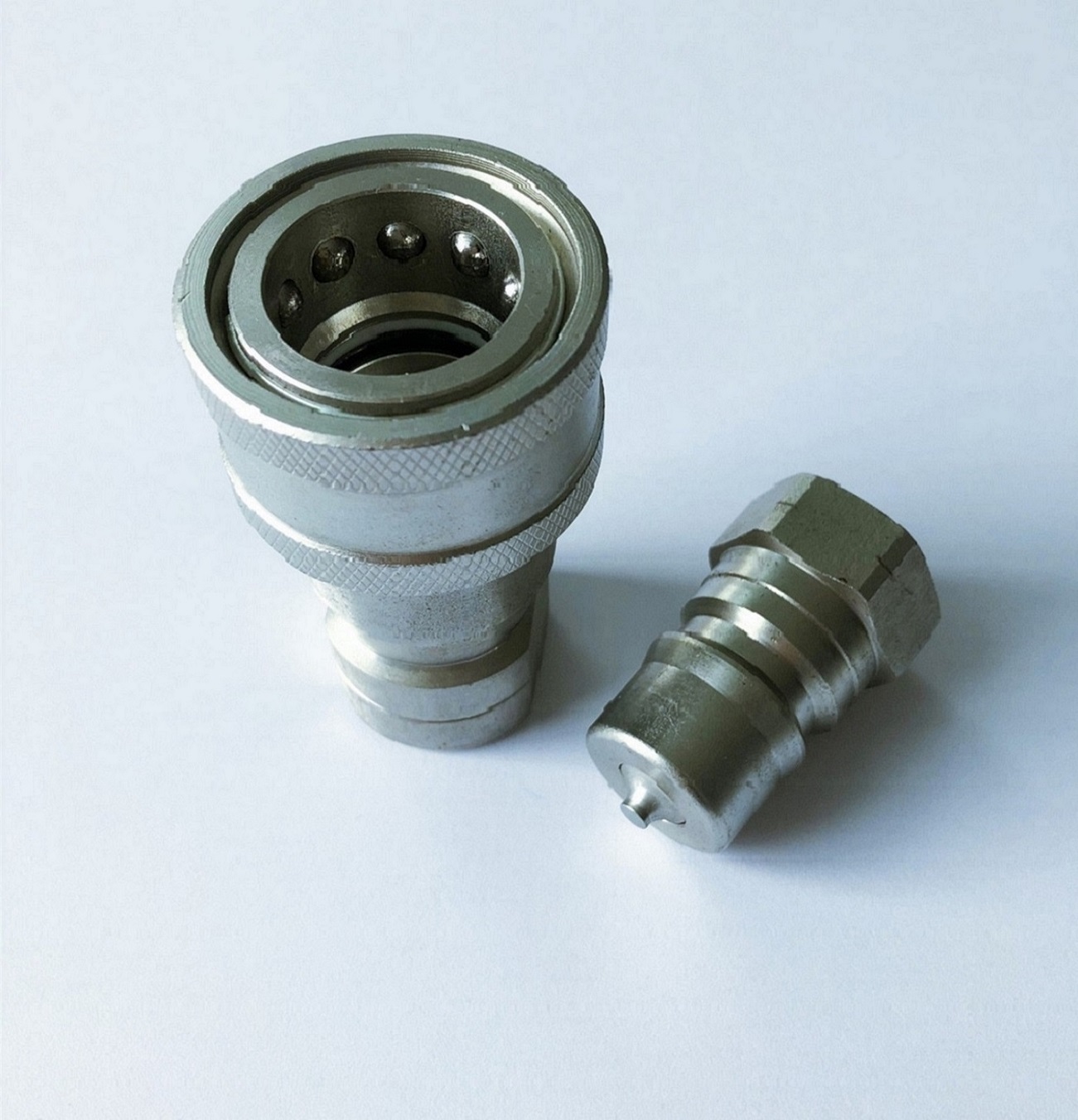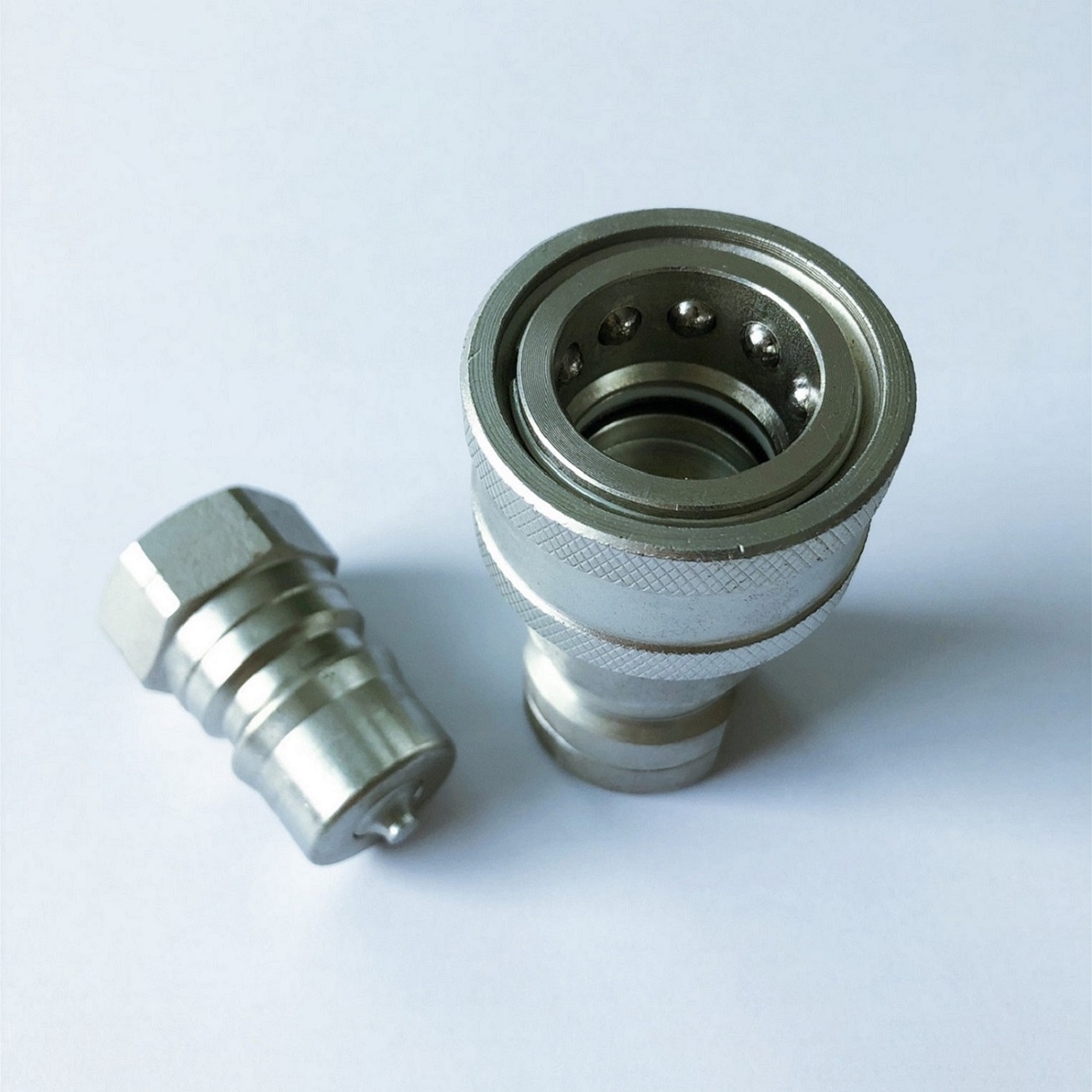On September 27th, 2017, the first batch of “Pure Line Fast Charge†new practical pure electric bus in China was operated in Qingdao High-tech Zone.
ISO7241-1B
interchange series Quick Couplings features a rugged ball latch mechanism with automatic self-sealing poppet
valves in a wide array of port configurations and multiple valved and non-valved
configurations. Self-sealing poppet valve design provide excellent high and low
pressure sealing. The Quick Coupling have standard seal material-Buna-N, others
seal options available in PTFE, Neoprene, Fluorocarbon, EPDM, and Kalrez .The Quick Coupling have standard body
material-zinc plated steel with stainless steel springs, balls and retaining
rings.
ISO7241-B Series Quick Coupling Quick Connect Coupling,Hydraulic Quick Coupler,Hydraulic Coupling,Iso7241 B Series Quick Couplings XINXIANG PINGYUAN AVIATION HYDRAULIC EQUIPMENTS CO.,LTD , https://www.coupling.pl
The 20 "Northern" BFC6129GBEVS1 new practical pure electric buses operated on the line are based on the NEOPLAN core manufacturing process of the North Bus. They combine the new energy talents and technological advantages that have been deposited over the years, and cooperate with many patents of Datang Gaohong. The new practical bus developed jointly with practical technology has realized the first new energy source in China with the core of “full load bearing, lightweight body structure, multi-angle tilt automatic capture charging bow technology, mobile process fast charging technology and cloud dispatching systemâ€. The practical application of bus product technology has comprehensively improved the comprehensive operational efficiency of bus companies using electric buses. The launch of the new “Urban†practical pure electric bus has solved the technical problems of new energy bus application and created a new supply operation mode for pure electric bus. This is another milestone innovation in the development route of new energy bus technology. The new demand in the bus industry will be further released.
A number of domestic leading technologies improve bus operation efficiency BFC6129GBEVS1 has many advantages such as line charging, air fast charging, side-by-side charging, space saving, green energy saving, etc., which can greatly improve the comprehensive operation efficiency of bus companies' electric buses.
The use of network-type air charging does not add planning land. At present, domestic new energy buses mainly adopt charging and changing modes. The resources for charging stations and charging piles need to be increased, and the existing dual-source pure electric buses are used. Driven by the line, the flexibility is low, and the urban air charging line network is cluttered, and the investment in the construction of the network line is relatively large. The charging mode of BFC6129GBEVS1 adopts the fast charging facility consisting of “box DC substation + overhead line network + box energy storage station†in the bus station, which has the advantages of good flexibility and small floor space. The bus company can complete the construction of the charging facility by using the existing space of the station, without having to add planning land. And the original charging pile can also be used as a supplementary charging facility to avoid waste of resources.
The charging equipment room of the delivery (Qingdao) Cozy Bus Station has an area of ​​15 square meters. It is equipped with two charging and overhead lines for fast charging and slow charging. It does not affect the layout of the existing station parking and driving lanes, and forms with the original charging pile equipment. Stereo charging mode. Smart line fast charging new pure electric bus and its supporting facilities not only saves space, but also accounts for only 1/10 of the power station or 1/2 of the charging station. Effectively reduce the initial investment construction cost and post-operation cost of the bus company, and improve the comprehensive operation efficiency of the bus company.
The automatic charging method of charging is more flexible and adopts the charging technology of the line, which can realize multi-ground, multi-vehicle and multi-mode simultaneous charging. The charging line network built in Qingdao High-tech Zone is about 100 meters long. The outside is a fast charging network. It only needs to be charged for 5 minutes. The vehicle can run for 40 kilometers. It is mainly used for temporary power supply of vehicles. The inner side is a slow charging network. After that, it can be stopped and charged in order, and the inner and outer charging wires can charge 30 cars at the same time. In addition to fast charging and slow charging, the car can also be charged by the charging gun of the charging pile to adapt to various operating environments.
The development of dual-source trolley bus, the charging bow from the manual line to the automatic line, and then upgraded to the automatic induction capture charging introduced today, making the driver charging process more flexible and convenient. The automatic capture charging bow of the northern passenger car can realize the automatic capturing and charging ability of the vehicle and the charging network cable within a range of 1.5 meters. The driver only needs to press the charging button, and the pantograph will accurately capture the air charging cable network. After the vehicle slides out, it will be automatically charged, which can realize multi-vehicle side-by-side charging and sequential mobile charging. At the same time, the roof is also equipped with a camera, so that the driver can monitor the lift of the pantograph by monitoring, so as to adjust the position of the vehicle in time.
Equipped with Internet + platform to make the bus smarter BFC6129GBEVS1 is also equipped with traffic smart cloud platform, with dangerous goods detection system, driving behavior monitoring platform, security early warning system, guide blind system, mobile payment system and face recognition, passenger flow monitoring, intelligent scheduling, etc. A number of domestic smart IoT information technologies provide passengers with a convenient, safe and comfortable ride experience.
At the same time, the car is equipped with a humanized service facility such as a tissue box, a love umbrella, an umbrella cover, an emergency box and a reading bag to make the citizens more comfortable.
Take the initiative in development, and dare to challenge in the innovation. Under the policy support of the country to strongly encourage the development of new energy public transport, the northern passenger car as a large state-owned joint-stock system takes the initiative in the development and innovation of passenger car new technology and new energy, and dares to challenge .
The promotion and application of new energy pure electric buses is a national new energy development strategy, and it is an inevitable trend in the development of public transportation products. In recent years, China's pure electric buses have developed rapidly and achieved remarkable results. However, in the application process of pure electric bus, there are some practical problems of short driving range, insufficient charging space, large capital demand and large amount of consumption, long charging time, heavy battery configuration and short life, and low vehicle availability. The diversity of bus operations by bus manufacturers is difficult to achieve on one product, and it is difficult to meet the actual operation and operation needs of many bus companies. As far as the government is concerned, the development of new energy vehicles is a national strategy, but there are also tight capital and difficult land acquisition approvals, which have become urgent problems to be solved in the development of new energy public transport.
Faced with the above various problems, how to break the dilemma of pure electric bus in actual operation, and create new energy bus products for bus companies with more practical and individual needs, these problems are placed in front of bus and bus manufacturers. China Road Association, Datang Gaohong and North Bus and other enterprises have repeatedly explored and tried new energy bus technology routes that are more suitable for operational needs, and finally developed a four-in-one system solution for vehicles, charging stations, management systems and ancillary services. . As the main body of the bus, Beifang Bus began to develop the practical technology and products of BFC6129GBEVS1 new electric bus from February 2016 and Datang Gaohong. The development of the prototype car lasted for 6 months, the product experiment and the actual road in the past year. The test finally realized the first batch of 20 new practical pure electric buses in the country, which was launched on the Qingdao Warm Bus of the Transportation Group. It also became the first domestic manufacturer to apply the “Smart Fast Charge†technology to the new energy bus products. This is another milestone innovation in the development route of new energy bus technology.
As a large state-owned joint-stock bus manufacturer controlled by China Communications Construction Corporation and China Armed Forces, the North Bus Company has taken the lead in introducing European advanced bus manufacturing technology to promote the upgrading of China's passenger car industry and parts industry. It is the first in the “Eleventh Five-Year Plan†period. The two universities, including Beijing Institute of Technology and Tsinghua University, jointly participated in the National 863 Program Energy Conservation and New Energy Vehicle Major Projects, and made outstanding contributions to the improvement of China's new energy vehicle core technology level and industrialization; The development of energy-only electric buses has formed a strategic cooperation with socially advantageous resources. It has taken the initiative in the development of new energy and new technologies, and has been brave enough to challenge and bring revolutionary innovation to the development of China's public transportation technology. The North Bus has always been advancing with the continuous improvement of the Chinese bus industry by fulfilling its social responsibilities and demonstrating the image of state-owned enterprises.


